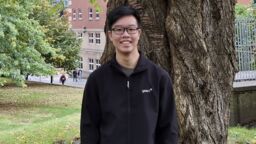Biomedical Science
Biomedical science at Sheffield is all about understanding the human body and our ability to control it during health and disease. Learn about everything from genes to whole-body systems.
Our courses
We offer a range of options, including the traditional three-year BSc and our four-year integrated masters (MBiomedSci) that gives you an extra year of research experience. You can apply to spend a year working on placement or studying abroad, once you join the University.
Learn more about biomedical science at Sheffield, including details of our modules:
2027-28 entry
2026-27 entry
BSc Biomedical Science with a Foundation Year
Our foundation year programme provides mature students with non-standard entry qualifications a thorough and supportive academic preparation for successful degree level study in the School of Biosciences.
Accredited degrees
Our undergraduate degrees in biomedical science are accredited by the Royal Society of Biology with Advanced Accreditation for our integrated masters programme. This shows employers that you've developed the practical skills and scientific knowledge that they're looking for.
What our students say
Top 10 in the UK for Biomedical Sciences
— Complete University Guide 2026

International undergraduate scholarships
We are offering scholarships of £2,500 for each year (subject to a 60% average) of your undergraduate degree. The maximum value is £10,000 for four-year programmes.



